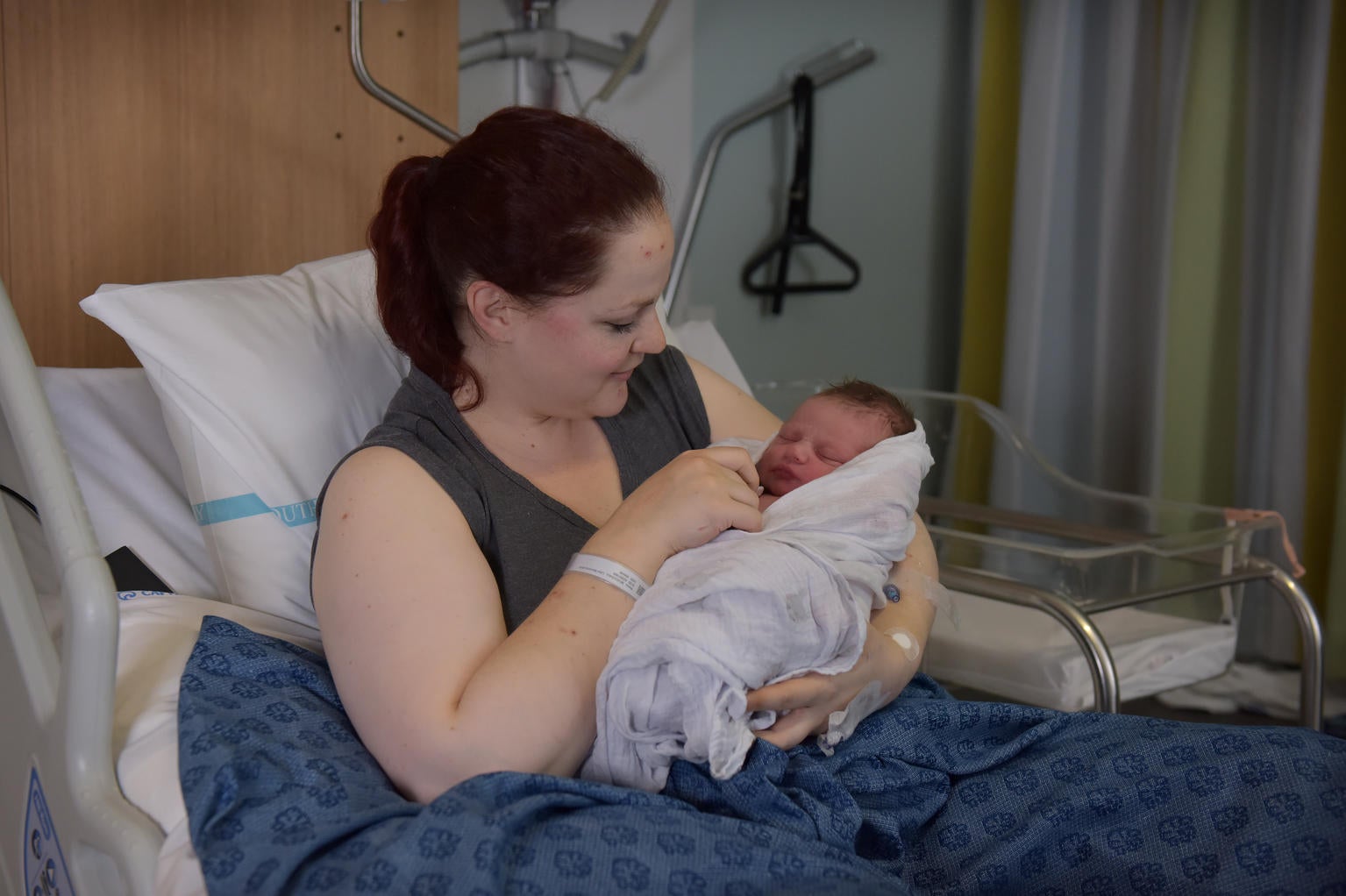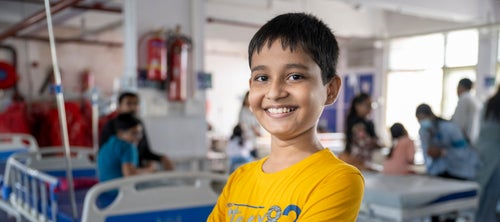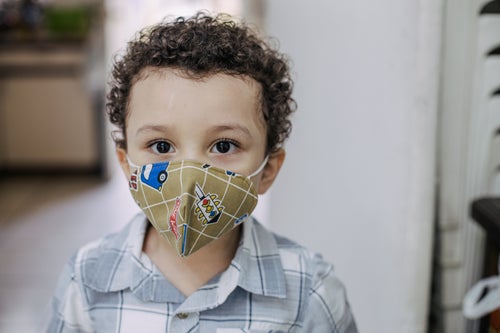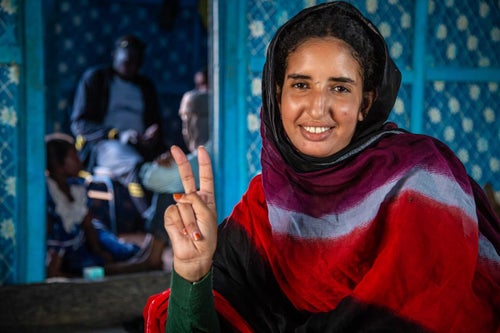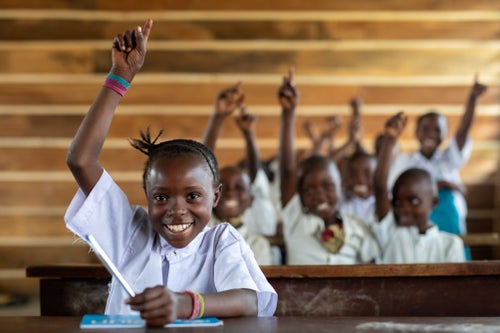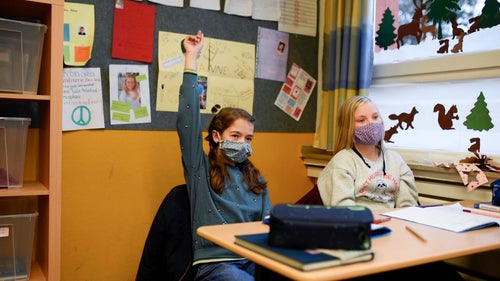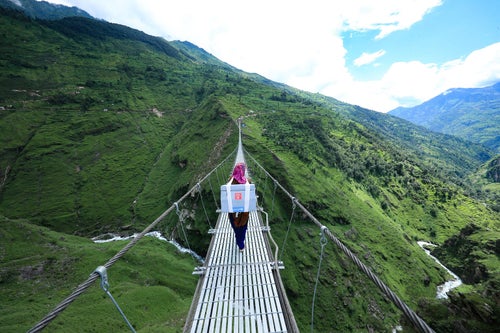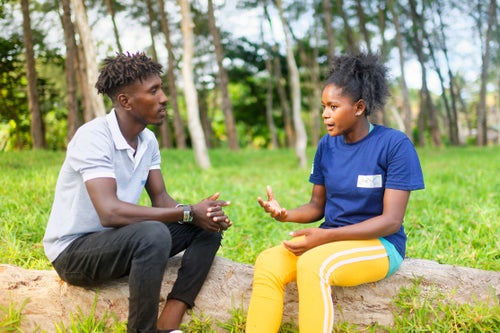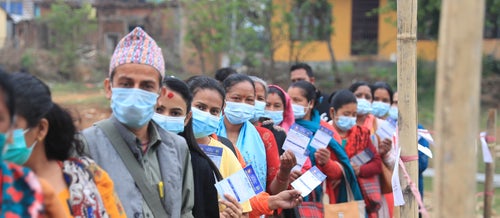Pregnancy is a special time full of excitement and anticipation. But for expectant mothers facing the outbreak of coronavirus (COVID-19), fear, anxiety and uncertainty are clouding this otherwise happy time. To learn more about how women can protect themselves and their little one, we spoke with Franka Cadée, President of the International Confederation of Midwives.
1. Is it safe to continue prenatal check-ups?
Many expectant mothers are fearful of going to appointments while they are taking precautions, such as staying home and practicing physical distancing when outside. “You do see a lot of adaptation happening at the moment in the world where midwives are doing clinics or certain appointments by phone” says Cadée.
“I expect that pregnant women will find they’re seeing their healthcare professional less, to protect them and the healthcare professional from getting infected and that they will be seen [in person] when it’s necessary.” Modifications may also be tailored for individual patients depending on their respective conditions, for example lower vs. higher-risk pregnancies.
Cadée advises mothers to find out what options are available to them from their healthcare professional and in their communities. “The person who’s taking care of you is perfectly geared to you and your own needs, so your midwife or obstetrician will know best.”
After your child is born, it is also important to continue receiving professional support and guidance, including routine immunisations. Speak to your healthcare provider about the safest way to have these appointments, for you and your baby.
2. If I have coronavirus (COVID-19) will I pass it to my baby?
We still do not know if the virus can be transmitted from a mother to her baby during pregnancy. “The COVID-19 virus has not been found in vaginal fluid, in cord blood or breastmilk,” says Cadée, although information is still emerging. To date, COVID-19 has also not been detected in amniotic fluid or the placenta.
The best thing you can do is to take all necessary precautions to prevent yourself from contracting the COVID-19 virus. However, if you’re pregnant or have just given birth and feel ill, then you should seek medical care promptly and follow instructions from your health care provider.
3. I was planning on giving birth in a hospital or healthcare clinic. Is this still a good option?
“Women should ask their midwife [or health care professional] what they feel is the safest place for them and how precautions are being taken from situation to situation,” recommends Cadée. For the safest option for you, it is important to speak to the healthcare professional who is supporting you throughout your pregnancy and birth.
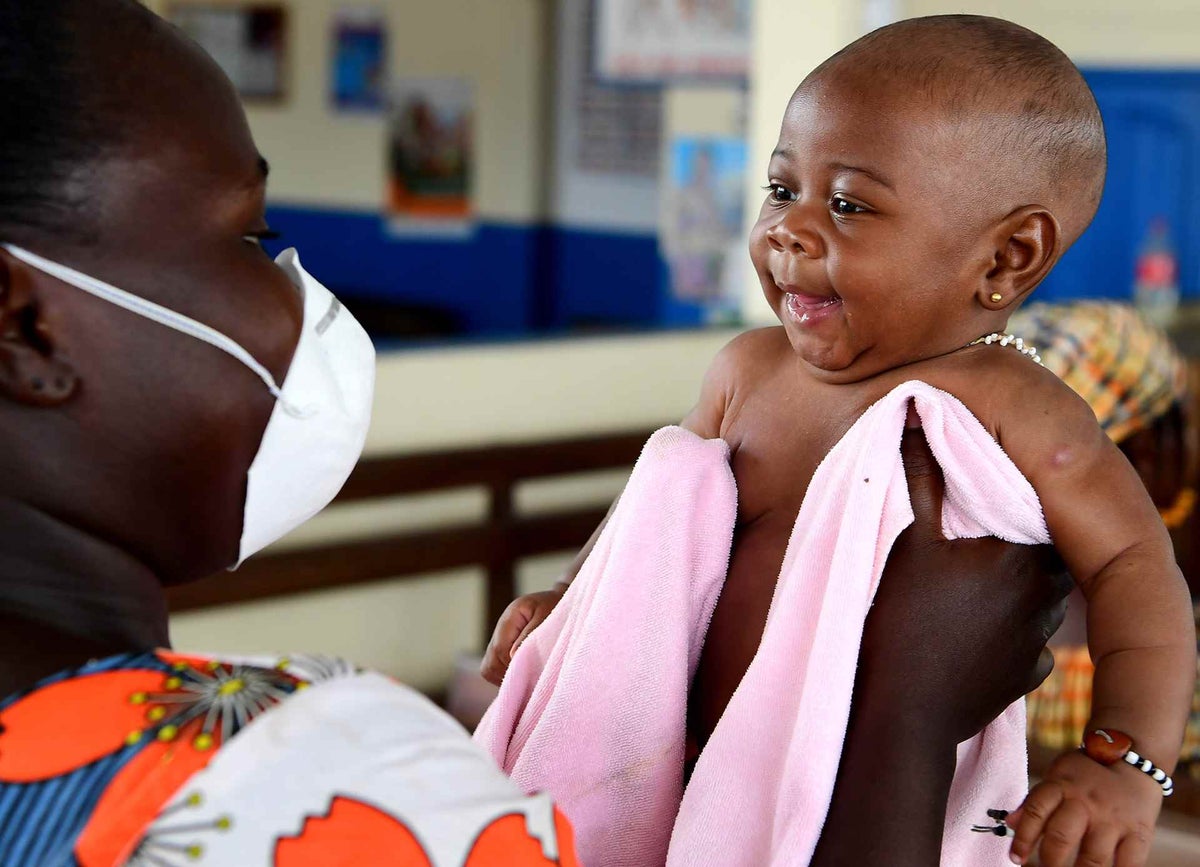
4. Can my partner or family member be nearby when I give birth?
Cadée believes women should have someone nearby to support them, as long as the proper precautions are taken, such as wearing a mask while in the delivery room and washing their hands.
"We have to be compassionate and understand each situation as it is and that the healthcare professionals together with the family members are doing their best, using their common sense and listening to each other. I think that’s very important: that we try to work as a community"
5. I’m feeling incredibly anxious about giving birth. What should I do to cope?
Having a plan in place for your birth can help ease feelings of anxiety by giving you more of a sense of control, but recognising that the current situation means there may be less predictability. “This should include who to phone when the labour begins, who will provide support during labour and where. Establish what restrictions will be in place for hospital birth regarding support people and family members,” advises Cadée.
She also recommends doing simple things at home to relax, “like [stretching] exercises, breathing exercises and giving your midwife a call if you need to.” Focus on taking care of yourself as much as you possibly can. “Eat well, drink well, put your hands on your belly and enjoy being pregnant.”
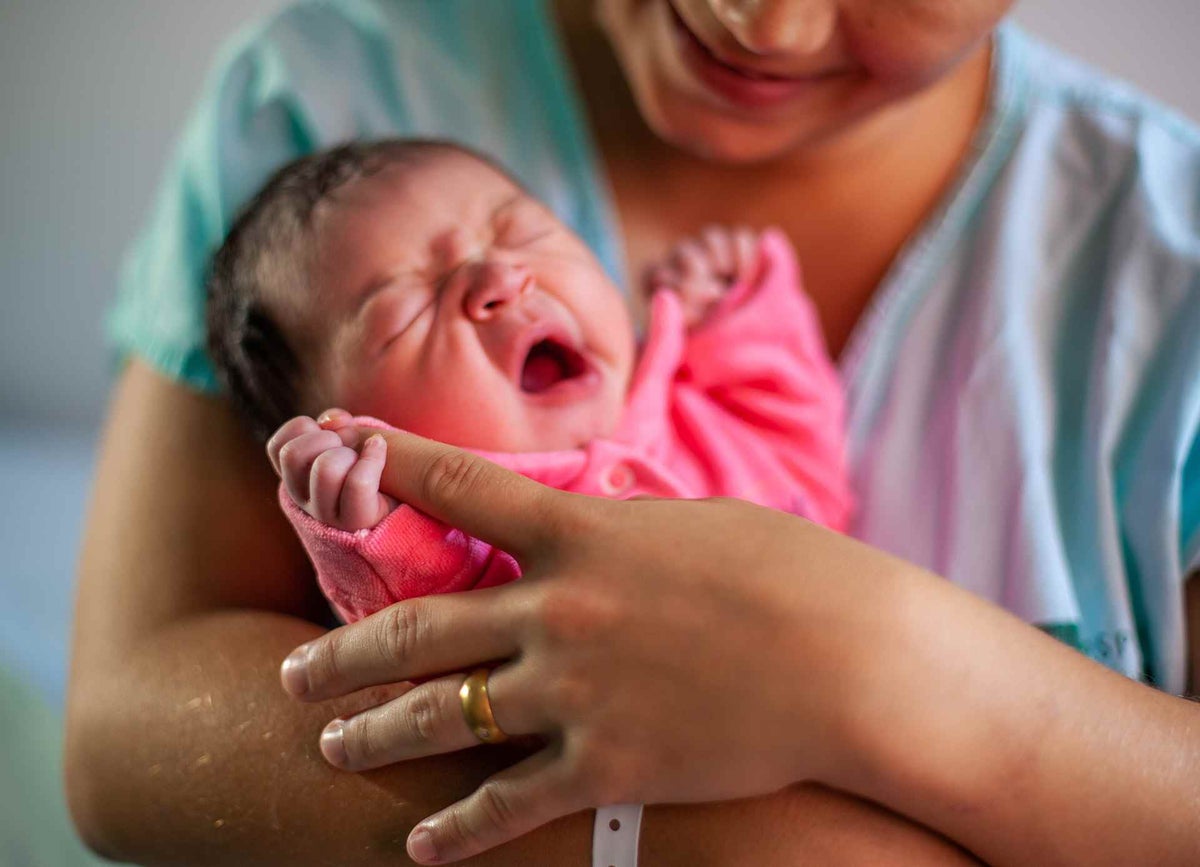
6. What questions should I be asking my healthcare professional?
Cadée underlines the importance of establishing a trusting relationship with your healthcare provider. “All of those questions that have to do with you and your health, I would ask them freely. If you have an open relationship with your healthcare provider – with your midwife, with your obstetrician – they will discuss these things with you and answer you openly. It is your absolute right to know these things because it’s your body and your baby.”
“Midwives are responding to increased demands on their services as are doctors and nurses, and so may take a little longer to respond,” Cadée notes. She suggests establishing a system of how and when to communicate with your healthcare professional. For example, organise routine around appointments, and how to get in touch for urgent care. It may also be helpful to talk to care providers in advance about obtaining a copy of your health records including record of prenatal care, in case of any disruption or change in services.
When it comes to your plan for giving birth, it is important to ask as many questions as you need to. Cadée suggests the following:
- Am I at risk of coronavirus disease in this space? Has someone else been here with the COVID-19 virus?
- How do you separate people with the COVID-19 virus from people who have not?
- Is there enough protective clothing for the healthcare professionals?
- Am I allowed to take someone with me? If not, why not?
- Am I allowed to keep my baby with me? If not, why not?
- Am I able to breastfeed my baby? If not, why not?
- Am I allowed to give birth vaginally or do you give Caesarean section sooner? If so, why is that?
7. What should women pack to go into hospital given the coronavirus (COVID-19) outbreak?
“I don’t think women need to take anything extra, but they should take precautions well into account,” advises Cadée.
She expects some hospitals may ask women to go home more quickly than normal if they’re healthy. Cadée recommends that expecting mothers should “ask their midwife or their obstetrician for advice that’s really tailor made for them.”
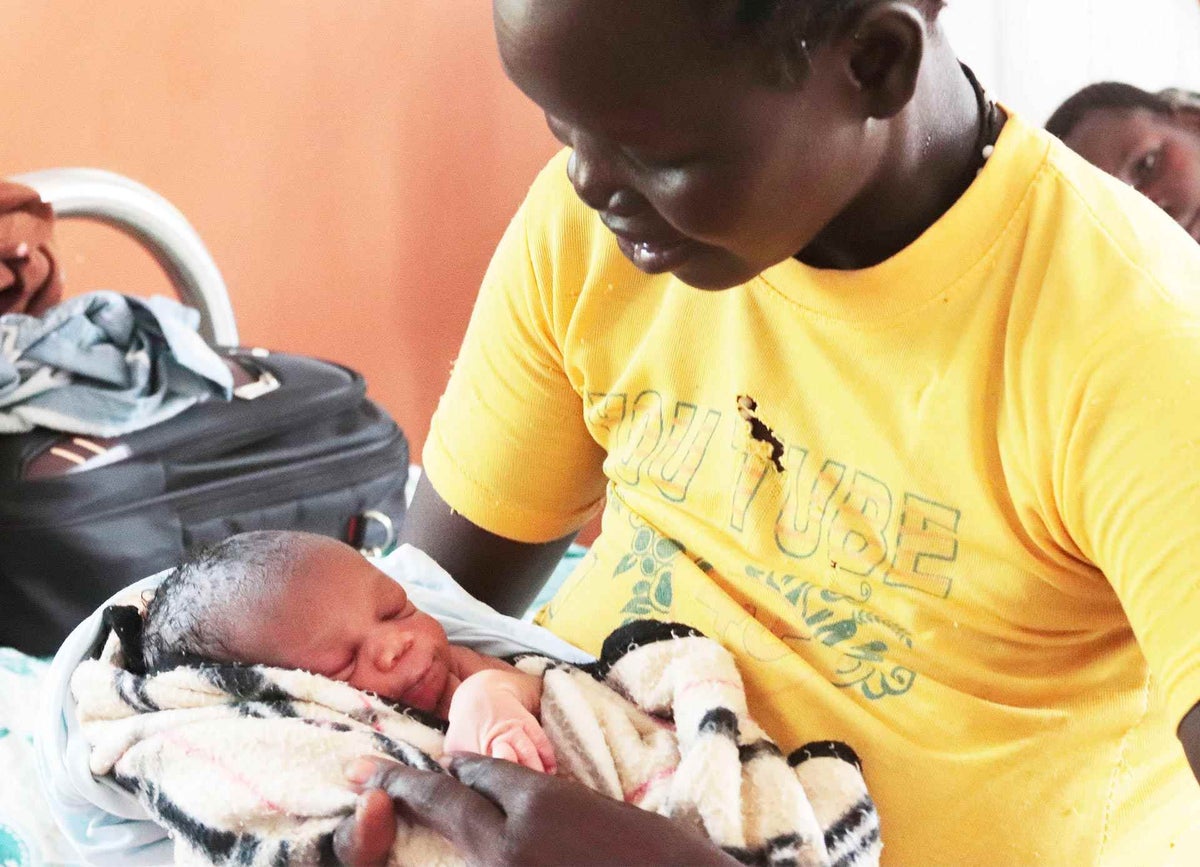
8. Once I have given birth, what can I do to protect my newborn from the COVID-19 virus?
The best thing you can do is to keep it simple: stick to just your family and don’t ask for visitors right now. “Get your family to wash their hands and take good care of themselves,” says Cadée.
Although it’s a difficult time, Cadée recommends trying to see the positive side of having this time to bond as a family. “Sometimes it can be very busy for young mothers and fathers to have so many visitors. Enjoy the quietness of your [immediate] family together for this time. It’s quite special to be able to bond with your baby alone, discover that new human being and enjoy that.”
9. I am an expecting mother. What should I be doing to keep myself safe during the COVID-19 virus outbreak?
As far as the research shows, pregnant women are not at a higher risk of contracting the COVID-19 virus than any other group of people. That being said, due to changes in their bodies and immune systems, pregnant women in the last months of pregnancy can by badly affected by some respiratory infections, and so it’s important to take precautions.
“I know that for pregnant women it can be really hard – of course they’re caring for themselves and for their baby and sometimes have other children as well – but as far as we know, pregnant women are not at more risk than other people are, and for that reason they need to do the same things as everyone else,” explains Cadée. She advises practicing the following physical distancing measures:
- Avoid contact with anyone displaying symptoms of coronavirus (COVID-19).
- Avoid public transport when possible.
- Work from home, where possible.
- Avoid large and small gatherings in public spaces, particularly in closed or confined spaces.
- Use telephone, texting or online services to contact your midwife, obstetrician and other essential services.
Additional protective measures include frequent hand washing with soap and water, regular cleaning and disinfection of frequently touched surfaces at home, self-monitoring of any signs or symptoms consistent with COVID-19 and seeking early care from a health care provider.
10. Can I safely breastfeed my baby?
“As far as we know, it is perfectly safe to continue breastfeeding. It's the best thing a mother can do for her baby," says Cadée. Transmission of active COVID-19 (virus that can cause infection) through breast milk and breastfeeding has not been detected to date.
If you suspect you may have the COVID-19 virus, it is important to seek medical care early and follow instructions from your health care provider. Mothers well enough to breastfeed should take precautions, including wearing a mask if available, washing hands before and after contact, and cleaning/disinfecting surfaces. If you are too ill to breastfeed, express milk and give it to your child via a clean cup and/or spoon – all while following the same precautions.
11. What should I do if I live in a crowded space?
Many women around the world live in close proximity to lots of other people, making physical distancing much more challenging. In such places, “I would really ask the whole community to take care of their pregnant women,” urges Cadée. She recommends that people keep their distance from pregnant women as much as possible and that certain toilets be designated for them.
And don’t forget the importance of handwashing in the community. “Handwashing is not said for nothing. COVID-19 and soap don’t like each other. It’s a simple measure that can do a lot of good,” she says. “I really hope that whatever situation people face, that the community and the healthcare professionals think of a system whereby it is as safe and secure for pregnant women, who after all are giving birth to our future. That needs to be treasured!”
See our COVID-19 resources for more advice, tips and activities to support you and your family through the coronavirus pandemic, from UNICEF experts in health, early childhood development, education, and child protection.
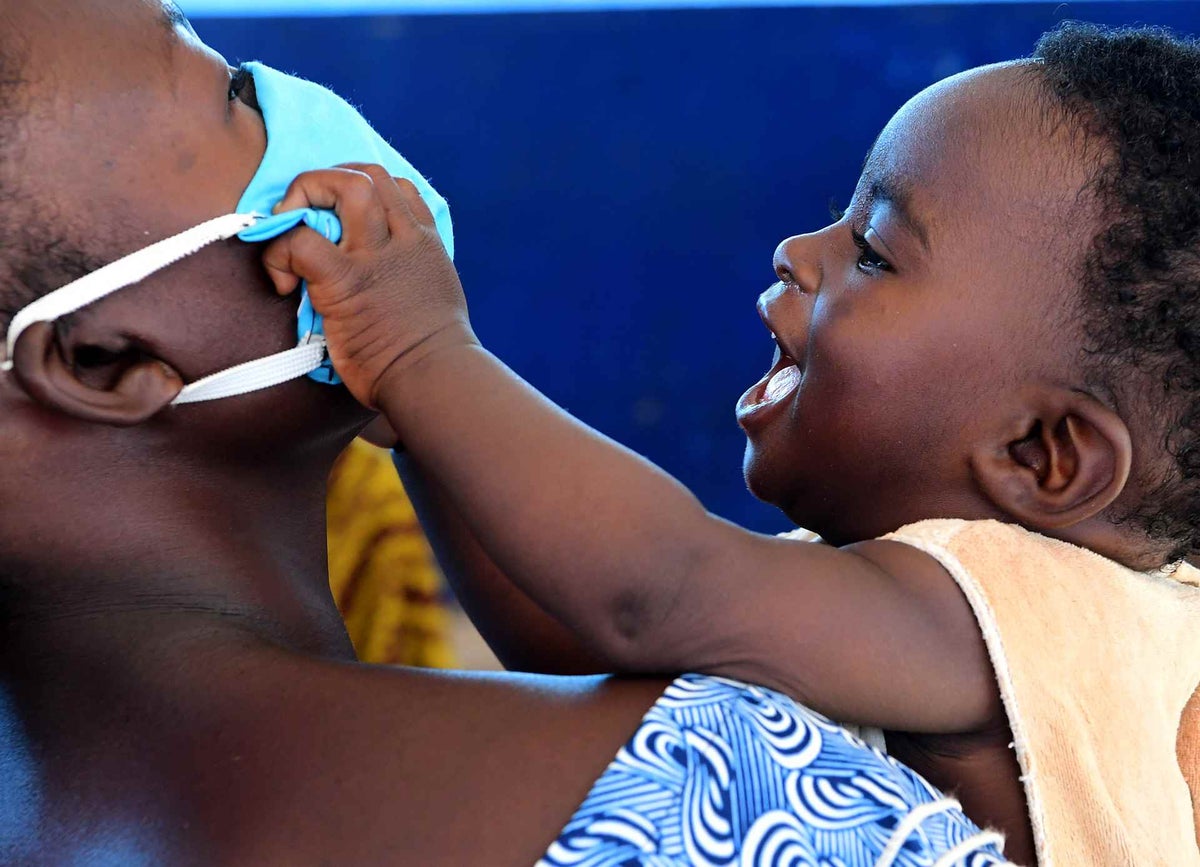
A novel coronavirus (CoV) is a new strain of coronavirus. The disease caused by the novel coronavirus first identified in Wuhan, China, has been named coronavirus disease 2019 (COVID-19) – ‘CO’ stands for corona, ‘VI’ for virus, and ‘D’ for disease.
Formerly, this disease was referred to as ‘2019 novel coronavirus’ or ‘2019-nCoV.’ The COVID-19 virus is a new virus linked to the same family of viruses as Severe Acute Respiratory Syndrome (SARS) and some types of common cold.
The virus is transmitted through direct contact with respiratory droplets of an infected person (generated through coughing and sneezing), and touching surfaces contaminated with the virus. The COVID-19 virus may survive on surfaces for several hours, but simple disinfectants can kill it.
Symptoms can include fever, cough and shortness of breath. In more severe cases, infection can cause pneumonia or breathing difficulties. More rarely, the disease can be fatal.
These symptoms are similar to the flu (influenza) or the common cold, which are a lot more common than COVID-19. This is why testing is required to confirm if someone has COVID-19.
It’s important to remember that key prevention measures are the same – frequent hand washing, and respiratory hygiene (cover your cough or sneeze with a flexed elbow or tissue, then throw away the tissue into a closed bin). Also, there is a vaccine for the flu – so remember to keep yourself and your child up to date with vaccinations.
Here are four precautions you and your family can take to avoid infection:
1. Wash your hands frequently using soap and water or an alcohol-based hand rub
2. Cover your mouth and nose with a flexed elbow or tissue, when coughing or sneezing, and throw away the tissue into a closed bin
3. Avoid close contact with anyone who has cold or flu-like symptoms
4. Go to the doctor if you have a fever, cough or feel that it is difficult to breathe
Related articles
Stay up-to-date on UNICEF's work in Australia and around the world



